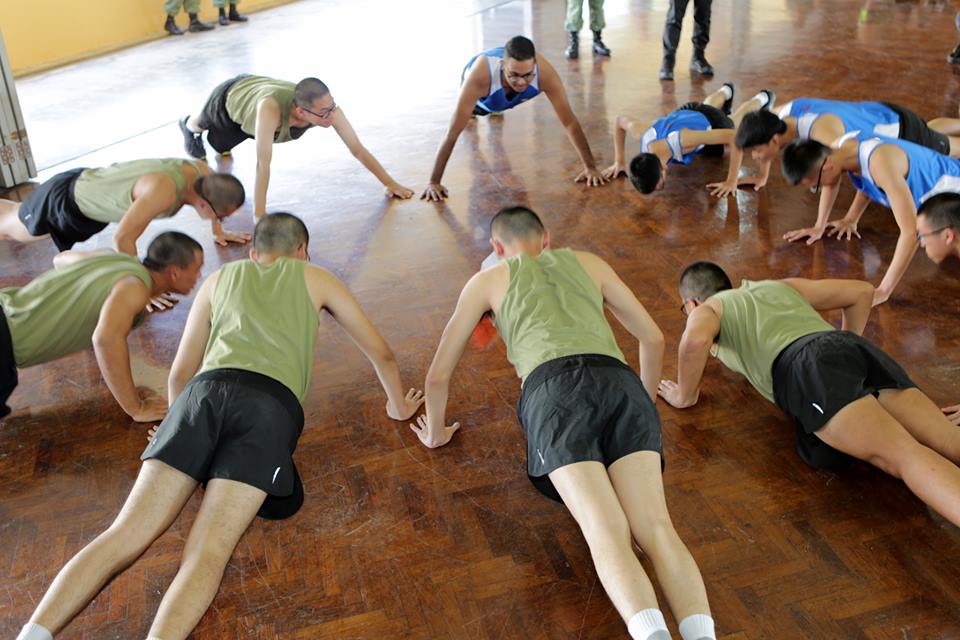Managing diversity in Singapore, published in 2016, is a book of essays distributed by World Scientific.
The book, which you can buy a copy of here, brings together a range of scholarly perspectives on the tensions posed by diversity in Singapore, and how it is managed at the policy level.
Leong Chan-Hoong, Yang Wai Wai and Jerrold Hong contributed an essay titled "National service: The holy grail in the management of social diversity" as a chapter in the book.
Their essay examines the emerging divisions in society, and offers insights into how the policies of National Service can trigger contestations.
***
An excerpt from this essay, looking at the management of sexuality in the Singapore military, is reproduced here:
By Leong Chan-Hoong, Yang Wai Wai & Jerrold Hong
The management of diversity in National Service is occasionally controversial and the practices do not always move in tandem with contemporary attitudes.
The issue of sexuality in the Singapore military is one such domain that has yet to catch up with current trends.
Society largely conservative regarding LGBT issues
Tolerance of different sexual orientations has gained wider acceptance in society worldwide, partly due to changing perceptions, cultural attitudes and increasing education levels.
Against this backdrop, Singapore remains a largely conservative society, where many still hold negative attitudes towards the LGBT (lesbian, gay, bisexual and transgender) community, maintaining a neutral stance, at best.
A survey of public attitudes in society showed a slight increase in positive attitudes towards homosexuality between 2005 and 2010.
In a reflection of the official stance of the Singapore government, National Service policies remain nebulous towards the diversity of sexuality.
NS policies regarding sexual orientations not said explicitly
While males who profess different sexual orientations are not explicitly exempt from National Service, there is no officially documented policy on the treatment of such cases.
There are unsubstantiated reports in blogs and online forums that servicemen who profess a homosexual orientation during pre or post-enlistment are reportedly confined to “non-sensitive” units, but the definition of what constitutes a “sensitive” unit is not clear.
Currently, it is unknown how homosexual women are treated in the military and whether such practices are comparable between sexes; this is because women are not subject to conscription and therefore make up a relatively small proportion of military personnel.
The protocol for dealing with homosexuality is not publicly disclosed and no information on sexual orientation can be found on official websites linked to MINDEF or the SAF.
Online anecdotes capture debates on controversial issues
MINDEF neither attends to requests to clarify its policy towards the deployment of homosexual soldiers, nor addresses personal narratives on the internet.
Ironically, the opaque nature of this topic has fuelled the tendency to use online anecdotes as indicative of pseudo-policies.
For instance, a topic thread posted on the SgClub National Service Forum, titled “Re: What will happen to gays in NS!” reveals the uncertainty surrounding the fate of homosexuals in military service, as seen in the following posts:
haruX — 15-01-2009, 07.25pm
i heard gays no need to serve /
Banao — 16-01-2009, 01.22pm
Think you can declare gay, and get posted to some lobo [‘left out of battle’] unit. But there are consequences for doing that, as in losing some rights and privileges as a citizen. Someone who knows more than me can clarify.
[ENEgue] — 16-01-2009, 03.48am
All these years, I was under the impression that gays do not need to serve if they declare to Mindef. Now that silverspeed mentioned that there are gays in his unit, it makes me think otherwise.
In a sense, the official stance on sexual diversity, if there is one, strongly reflects the wider debate in Singapore on the controversial topic.
Unclear policy actually gives room for flexibility
MINDEF and the SAF are not independent of the political leadership of Singapore.
In January 2013, Prime Minister Lee Hsien Loong, in reference to Section 377A of the Penal Code, which criminalises sexual acts between men, said: “These are not issues we can settle one way or the other, and it’s really best for us just to leave them be, and just agree to disagree”.
In other words, the stand of the incumbent remains that Singaporeans need to recognise the conservative nature of our society and that pushing the agenda on sexual orientation from either end of the spectrum would polarise and fracture the country.
Taken from this standpoint, this nebulous stance offers flexibility in the implementation of policy when addressing a still-controversial issue in Singapore today.
Navigating intricacies in managing diversity
The Singapore government policy, or lack thereof, regarding sexual diversity in the military, has familiar hallmarks.
After all, sensitive issues of race, language and religion are similarly handled, with no hard and fast rules.
Take, for instance, the public furore over local public transport operator SMRT’s decision to introduce Chinese-language announcements, together with the standard English-language broad- casts, of station names on its train lines.
Many social commentators felt that the transport operator was pandering to the influx of new immigrants from China. This is in spite of the fact that Singapore recognises English, Malay, Chinese and Tamil as its four official languages; and many cinemas in Singapore screen English-language films with only Chinese subtitles. Amid the public outcry, SMRT was forced to withdraw its Chinese-language broadcasts.
Such incidents highlight the intricacies involved in the management of diversity in a multiracial and multicultural society.
Underlying the management of diversity is the implicit understanding that divisions in society will not be resolved in one fell swoop.
National Service is one of the few conduits of discourse where the contestation among different groups is contained in a controlled environment.
Top photo via Singapore Army FB.
If you like what you read, follow us on Facebook, Instagram, Twitter and Telegram to get the latest updates.
